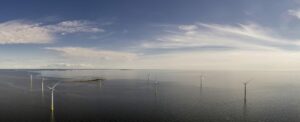
On 20 August, Finland’s Ministry of Economic Affairs and Employment published an action plan focused on advancing the offshore wind industry in the country. The plan outlines 17 proposals, emphasizing that the development of offshore wind farms will be driven by market conditions.
In October 2023, the Ministry of Economic Affairs and Employment appointed a working group to examine ways to improve Finland’s competitive position in offshore wind, compared with other Baltic countries, and promote targets for offshore wind capacity set out by the government.
Last year, the Ministry of Economic Affairs and Employment also launched a legislative programme on offshore wind in Finland’s exclusive economic zone. A draft bill was prepared and circulated for comment in early 2024. In addition, the Ministry of Finance is currently preparing legislative amendments concerning taxation of real estate and income in Finland’s exclusive economic zone.
The working group stated in the action plan that it is essential to set clear, long-term objectives, improve national coordination, and ensure offshore wind is compatible with other users of marine areas.
The premise of the work is that offshore wind farms will be built on market terms, said the ministry.
As a rule, the proposed measures primarily target the country’s exclusive economic zone and territorial waters, excluding the Åland-controlled sea area, though some may also support offshore wind development in that region.
Set to be implemented between 2024 and 2026, the proposed measures include defining long-term offshore wind goals and a more predictable framework for competitive tendering.
The working group also recommended establishing a coordination group for offshore wind and developing arrangements for the rights of offshore wind projects in the exclusive economic zone, as well as lowering the real estate tax on offshore wind farms in territorial waters.
The action plan advises streamlining the permitting process; creating procedures for grid connection of wind farms; and cooperation between ports to build the necessary infrastructure for the offshore wind sector and to utilise EU funding opportunities.
In addition, the plan suggested establishing common planning principles for offshore wind with Sweden; producing detailed maritime information to support maritime planning and land use planning; and safeguarding the operation of the fishing industry.
The working group also outlined the need to study the impact of offshore wind on migratory fish, marine mammals, migratory birds, and bats.